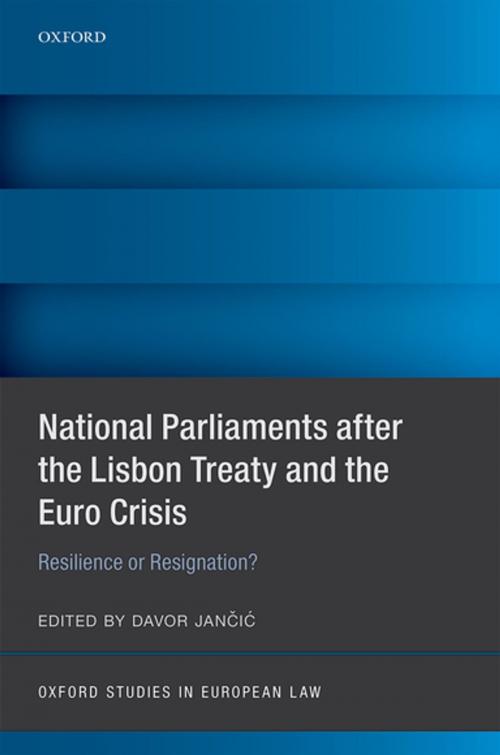National Parliaments after the Lisbon Treaty and the Euro Crisis
Resilience or Resignation?
Nonfiction, Reference & Language, Law, Securities| Author: | ISBN: | 9780192509345 | |
| Publisher: | OUP Oxford | Publication: | April 5, 2017 |
| Imprint: | OUP Oxford | Language: | English |
| Author: | |
| ISBN: | 9780192509345 |
| Publisher: | OUP Oxford |
| Publication: | April 5, 2017 |
| Imprint: | OUP Oxford |
| Language: | English |
A critical assessment by eminent legal and political science experts in the field, this book examines the two key factors which have deeply affected the position of national parliaments in European integrations: the entry into force of the Lisbon Treaty and the sovereign debt crisis in the Eurozone. Structured in three parts, the book will address the question, 'Do national parliaments exhibit resilience or resignation in these changed politico-legal and socio-economic circumstances in the EU?' Part I investigates the impact of the aforementioned factors against the theoretical concepts of constitutionalism and democratic legitimacy. Part II evaluates the changing nature of parliamentary functions, and Part III appraises the evolving relationships between national parliaments and national governments, national courts, and EU institutions, in addition to surveying the emerging patterns of interparliamentary cooperation. This interdisciplinary collection yields novel insights into how the deepening of the Economic and Monetary Union and the pursuance of new initiatives for parliamentary action impact the shape and nature of EU democracy.
A critical assessment by eminent legal and political science experts in the field, this book examines the two key factors which have deeply affected the position of national parliaments in European integrations: the entry into force of the Lisbon Treaty and the sovereign debt crisis in the Eurozone. Structured in three parts, the book will address the question, 'Do national parliaments exhibit resilience or resignation in these changed politico-legal and socio-economic circumstances in the EU?' Part I investigates the impact of the aforementioned factors against the theoretical concepts of constitutionalism and democratic legitimacy. Part II evaluates the changing nature of parliamentary functions, and Part III appraises the evolving relationships between national parliaments and national governments, national courts, and EU institutions, in addition to surveying the emerging patterns of interparliamentary cooperation. This interdisciplinary collection yields novel insights into how the deepening of the Economic and Monetary Union and the pursuance of new initiatives for parliamentary action impact the shape and nature of EU democracy.















